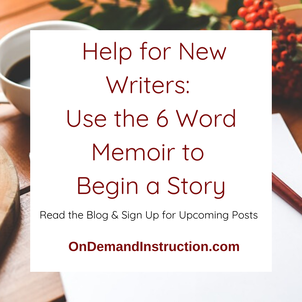
For the last few years, I’ve taught writing workshops to adults in memoir writing and short stories. Most of my students are new to creative writing and come in feeling intimidated about being judged or expected to achieve more than they feel capable of managing in a weekend workshop. As I listen to people’s concerns, I’ve heard consistently that writers have a hard time putting the first words on the page.
It seems like those first words are particularly intimidating, but once they are down, the rest of the story flows pretty well. When teaching essay, article, and blog writing, I recommend that my students write the middle portion first, then the introduction. It lessens the expectation that writers put on themselves to be perfect the first time around.
When first-time writers are breaking ground with their first stories, whether they are taking on a memoir story of childhood or a fictional short story, those first words can be the hardest. But one of the truisms of creativity--novices borrow but professionals steal—can help take care of that problem. Stealing words from another source is a tool we can use to get our stories started. If you are a first-time writer or if you need a bit of a booster, give this a try. We are going to steal stories from another genre to use in our stories.
Introducing the 6-Word Memoir
As the legend goes, a journalist asked Ernest Hemingway to write a story that could make a person cry with just six words. In true Hemingway fashion, he responded with a challenge accepted bravado and wrote the first 6-word memoir. Now, whether or not this story is historically accurate or not is unimportant to me, because it is such a great story. Hemingway's six-word story? For sale: baby shoes, never worn. When you read that six-word memoir, you get a full sense of the story: it’s a missing childhood, shoes never used, an adult who missed out, or someone who never was a child because they were forced to mature at a young age.
If we boil down what we want to say in just six words, we have achieved a significant accomplishment. We have communicated a full thought, a full story in a small amount of space. Communicating so precisely with few words is a powerful way to begin a story. Instead of explaining your setting or your character, begin your story with a six-word memoir and start with a bang.
Here are a few more examples to get you thinking:
With each of these six-word memoirs, you can imagine the story that could unfold from them. From “Three great kids. One terrible accident,” the reader is instantly intrigued and wants to find out what happened. What was the accident? Was there an accident to one of the children? What happened? When you introduce a scenario that causes your reader to ask questions about what is going on, you have the reader hooked.
How about the second example? “Hard work. Low pay. Still nothing.” After reading that line, the reader knows they will come across a story of struggle with little reward. Struggle is a classic theme in memoirs, so this kind of story can pull your reader into your story right away. The reader will hope for a happier ending and will be intrigued to know what happens in this unfolding tale.
Another example is “Who was counting the calories anyway?” I imagine this as the first line of a chef’s memoir. After reading this six-word memoir, the reader will expect a story about the joy and pleasure of food, rather than the tedious monotony of counting calories. Finally, the six-word memoir “I didn’t think this would happen” leaves the reader with questions. The reader wants to know what happened. What was the situation? Who was involved? How did things work out? Anytime that you get your reader asking questions about the story, you have them engaged and will keep them reading.
I have seen the six-word memoir used a couple of different ways, which may give writers more ideas for using this tool. You can use it as the first line of a story. Or you can use it as a transition between scenes, themes, or settings in a story. Another idea is to use it as the title of chapters in a book. If you need a way to start your story, try the six-word memoir.
Download the quick guide that will start you writing this weekend.
No matter if you are a poet, an essayist, a biographer, or a novelist, it’s time to write. Success! Now check your email to get your download. Related Blog Posts
Comments are closed.
|
About the SiteWelcome, Writers! Archives
September 2023
|

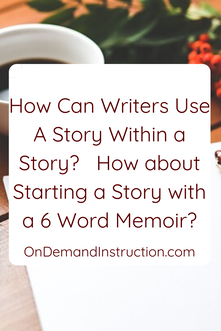

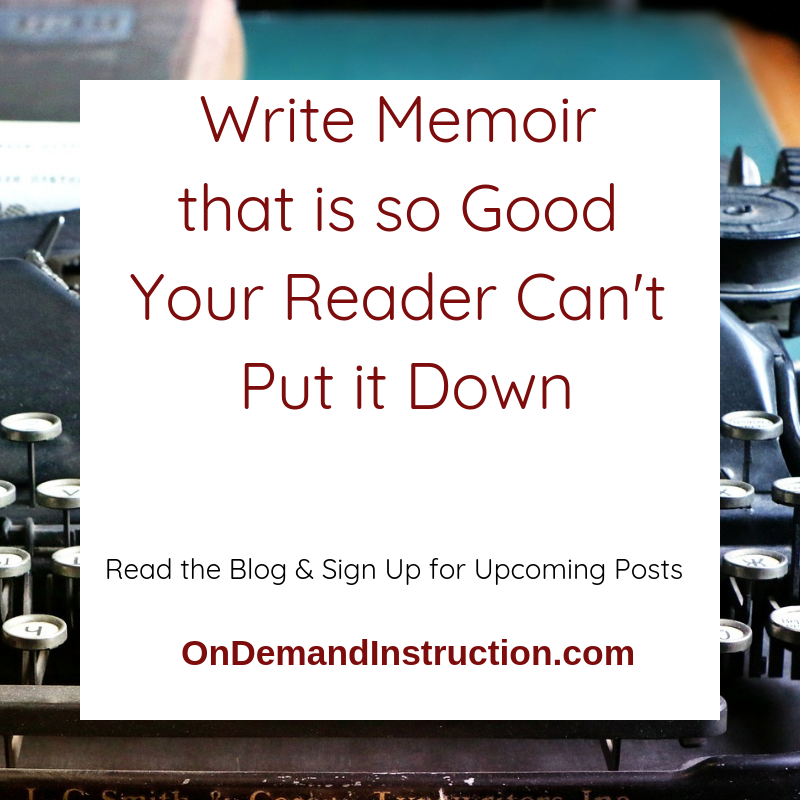
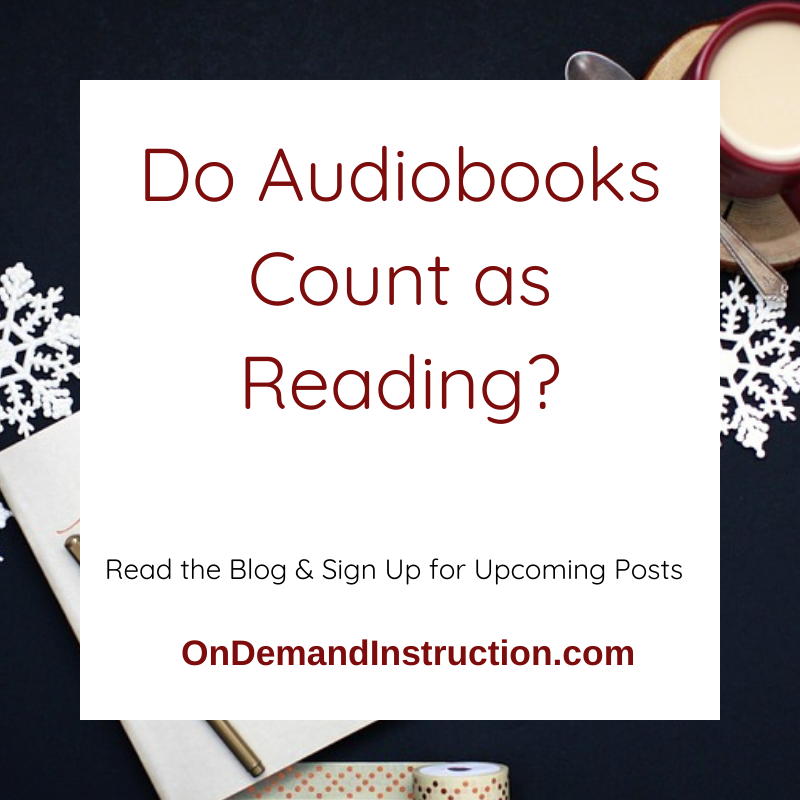
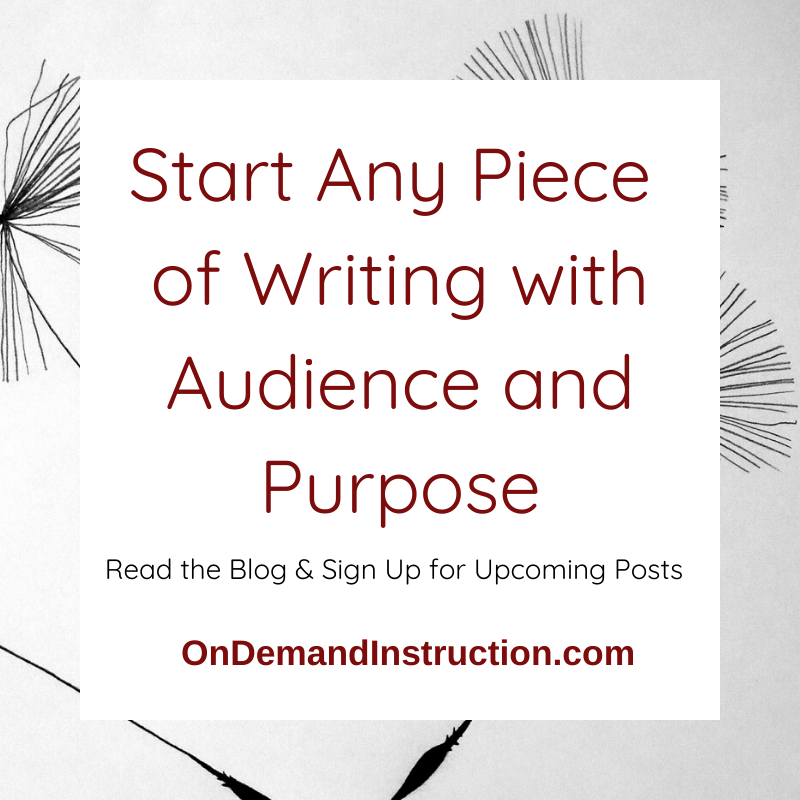
 RSS Feed
RSS Feed